_________________________________________________________________________________________
PLENARY SPEAKERS
_________________________________________________________________________________________
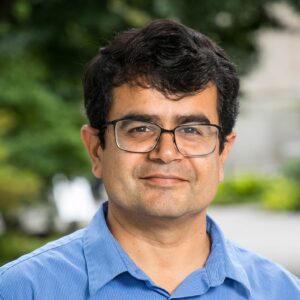
Prof. Samir Mitragotri
Harvard University, USA
Samir Mitragotri is the Hiller Professor of Bioengineering and Hansjorg Wyss Professor of Biologically Inspired Engineering at Harvard University and Wyss Institute. His research is focused on therapeutic and biomaterial development. His research has led to new technologies for treating many diseases. He is an elected member of the US National Academy of Engineering, US National Academy of Medicine and US National Academy of Inventors. He is an author on over 400 publications and an inventor on over 300 patents/patent applications. His research has led to several companies that have advanced technologies developed by him into clinical and commercial products. He is also an elected fellow of AAAS, CRS, BMES, AIMBE, and AAPS. He received BS in Chemical Engineering from the Institute of Chemical Technology, India and PhD in Chemical Engineering from the Massachusetts Institute of Technology.
_________________________________________________________________________________________

Prof. Kam W. Leong
Columbia University, USA
Dr Leong is the Samuel Y. Sheng Professor of Biomedical Engineering at Columbia University. He is one of the pioneers in developing multifunctional nanocarriers for delivery of drugs, antigens, proteins, siRNA, pDNA, and mRNA. Dr. Leong’s current research encompasses nonviral gene editing in vivo, biomaterials for inflammation modulation, and human-tissue chips for disease modeling and drug development. His publication record includes around 500 manuscripts, an h-index of 144, and over 78,000 citations. He also holds more than 60 issued patents. Dr. Leong’s contributions have been recognized by his election to the USA National Academy of Engineering, the National Academy of Inventors, and the National Academy of Medicine. Recent awards include the Society for Biomaterials’ Founders Award (2022), the IEEE-EMBS Career Achievement Award (2023), and the IEEE Biomedical Engineering Award (2024). Dr. Leong has been serving as the Editor-in-Chief of Biomaterials for the past decade.
_________________________________________________________________________________________
KEYNOTE SPEAKERS
_________________________________________________________________________________________
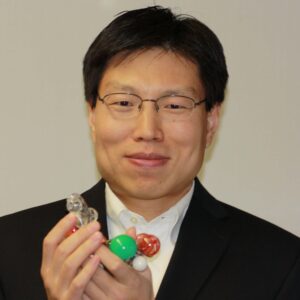
Prof. Yadong Wang
Cornell University, USA
YYadong Wang is the inaugural McAdam Family Foundation Professor in the Meinig School of Biomedical Engineering at Cornell University. He obtained his Ph.D. degree under the guidance of professor T. Daniel P. Stack at Stanford University in 1999, conducted his postdoctoral research under the mentorship of professor Robert Langer at MIT, and joined the Georgia Institute of Technology in 2003 as an assistant professor. He was recruited as an associate professor to the University of Pittsburgh in 2008. He was promoted to full professor in 2023 and then promoted to the Whiteford Professor within 3 months. He was recruited to Cornell University in 2017 to be the first McAdam Family Foundation Professor at Cornell. He has published over 150 peer reviewed articles on topics ranging from Chemistry, Materials Science to Biomedical Engineering. He has published in high-impact journals at every stage of his career. He is a fellow of American Institute for Medical and Biological Engineering and a fellow of the National Academy of Inventors. His research focuses on the design and application of biomaterials. Several of his inventions are licensed, one of which is commercially available and approved for clinical use. He co-founded three companies: one is marketing advanced medical adhesives, the other two are developing drug delivery technologies and vascular grafts respectively.
_________________________________________________________________________________________
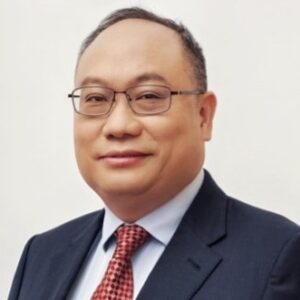
Prof. Xuliang Deng
Peking University School of Stomatology, China
Dr. Deng got his Ph. D in 1999 from Peking University Hospital of Stomatology. He has 26 years clinical experience in prosthodontics. He is a Member of the Academic Division of the Chinese Academy of Medical Sciences, President of the Peking University School of Stomatology, Director of the National Center for Stomatology, Director of the National Engineering Research Center for Oral Biomaterials and Digital Medical Devices, Deputy Director of the National Clinical Research Center for Oral Diseases. He serves as the Founding Chair of the Scientific Research Management Branch of the Chinese Stomatological Association. He is a Fellow of the International College of Dentists, a Fellow of the Royal Society of Chemistry, and a Visiting Fellow at the National University of Singapore. He is a recipient of the National Science Fund for Distinguished Young Scholars, and serves as the Principal Investigator for the National Natural Science Foundation’s Innovative Research Group Project and the Chief Scientist of the National Key Research and Development Program. He is editor of several textbooks and reviewer of multiple international journals. His research focuses on advanced prosthodontic techniques, the development and application of innovative dental biomaterials, and the integration of intelligent technologies in stomatology.
_________________________________________________________________________________________
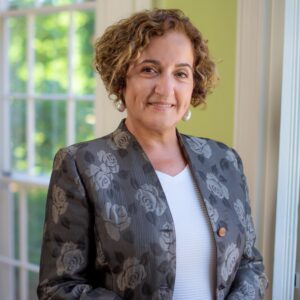
Prof. Hala Zreiqat
University of Sysney, Australia
Professor Hala Zreiqat AM is a Payne-Scott Professor of Biomedical Engineering at the University of Sydney. A global leader in biomaterials and regenerative medicine, she has pioneered innovative synthetic biomaterials using advanced materials science and 3D-printing technologies. Her achievements have been recognized by numerous awards, including a Fulbright Fellowship, Harvard Radcliffe Fellowship, and the NSW Premier’s Woman of the Year. She is an elected Fellow of Australia’s National Academies and the American Institute for Medical and Biological Engineering. She also chairs the Australia-Arab Council and founded BIOTech Futures to mentor the next generation of scientists and engineers.
_________________________________________________________________________________________
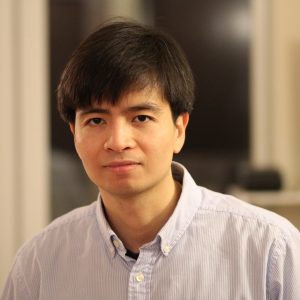
Prof. Thanh Duc Nguyen
University of Connecticut, USA
DDr. Nguyen is an associate professor of Mechanical Engineering, joined with the Biomedical Engineering department at the University of Connecticut (UConn). His research is highly interdisciplinary and at the interface of biomedicine, materials and nano/micro technology. Specifically, his research focuses on the science and technology to transform biodegradable and biocompatible materials (e.g surgical-suture polymers and amino acids) into special forms, shapes, or structures with “smart” functions at nano/micro-scales for diverse applications in vaccine/drug delivery, regenerative engineering and electrical implants. He developed a platform technology, so-called SEAL (StampEd Assembly of polymer Layer) to create 3-dimensional microstructures of biodegradable polymers and advanced the SEAL method to create a novel single-administration self-boosting skin microneedle patch. This single-administration microneedle platform can be programmed to repeatedly deliver not only vaccines but also other therapeutics like antibodies and diabetic/pain drugs, thus avoiding all painful and inconvenient injections in the traditional vaccination and drug administration methods. Besides the microneedle technology, his research group at UConn has extensively studied biodegradable piezoelectric materials, derived from safe medical polymers and natural amino acids, to develop novel biodegradable implanted force-sensor and ultrasound transducer for monitoring vital intra-organ pressures and delivering medicines through the blood-brain barrier, respectively. The biodegradable piezoelectric materials were also used as a tissue scaffold which can be remotely activated to produce electrical cues for stimulating tissue regeneration. Dr. Nguyen’s works have been published in prestigious journals including Science, Science Translational medicine, Nature Nanotechnology, Nature Communication, Advanced Materials, PNAS etc. and highlighted in major media such as The New York Times, BBC News, the Guardian, NIH research matter etc. He received several awards including the Young Investigator Award from the journal of Biomaterials (2022), ACell Young Investigator Award (2020), MIT top innovator under 35 for Asia Pacific (2019), NIH Trailblazer Award for Young and Early Investigators (2018), SPIE Rising Researcher Award (2019), Young Investigator Award in Biosciences and Bioengineering of Applied Sciences (2019), and the SME Outstanding Young Manufacturing Engineer Award (2018) etc.
_________________________________________________________________________________________
INVITED SPEAKERS
_________________________________________________________________________________________
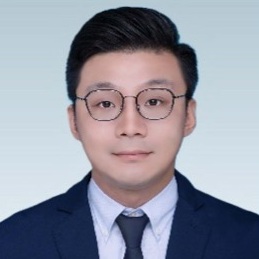
Prof. Liu Yang
Peking University School of Stomatology, China
Dr. Liu is currently an assistant professor in School and Hospital of Stomatology and a Boya Young Fellow at Peking University. He received his bachelor’s degree from Harbin Engineering University (2013) and PhD from Peking University (2019). He did his postdoc with Prof. Thanh D. Nguyen at the University of Connecticut. His research focuses on biodegradable materials used for regenerative engineering. He has published 40 papers in Science Translational Medicine, Nature Reviews Electrical Engineering, Advanced Functional Materials, Biomaterials, etc. He was awarded Trainee Award by Chinese Association for Biomaterials (CAB, 2022) and selected as the finalist of MIT TR35 Asian Pacific (2022). His work has been widely recognized by top researchers in Science, Cell, Nature Reviews Materials, Nature Reviews Rheumatology, and reported by more than 30 authorities and media.
_________________________________________________________________________________________
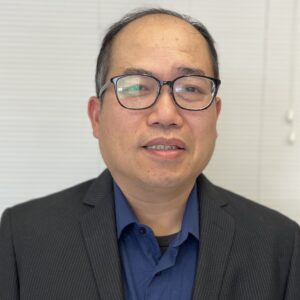
Prof. Kevin Lo
University of Connecticut, USA
Dr. Kevin Lo is an Associate Professor at the University of Connecticut (UConn) Health Center. He has held editorial positions on several prestigious international peer-reviewed journals including PLoS ONE, Scientific Reports, Regenerative Engineering and Translational Medicine, and Frontiers in Bioengineering and Biotechnology. His broad research interests are regenerative engineering, drug delivery, biochemistry and cellular molecular biology.
_________________________________________________________________________________________
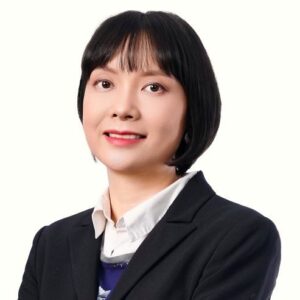
Prof. Minh T.N. LE
National University of Singapore, Singapore
Dr. Minh Le is an Assistant Professor and Graduate Program Director at the Department of Pharmacology, Yong Loo Lin School of Medicine, National University of Singapore. She received a Ph.D. degree in Computational and Systems Biology from the Singapore-MIT Alliance and further trained as a postdoctoral fellow at Boston Children’s Hospital. Dr. Le is a recipient of the L’Oreal Singapore for Women in Science Fellowship, the Graduate Mentor of the Year Award, the Promising Researcher Award as well as multiple national grants. Besides, she is also a cofounder of Carmine Therapeutics, and the director of the EVANTICA industry alignment program in Singapore.
_________________________________________________________________________________________
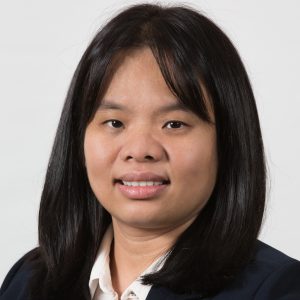
Prof. Dang Thuy Tram
Nanyang Technological University, Singapore
Dr Dang Thuy Tram is Assistant Professor at the School of Chemistry, Chemical Engineering and Biotechnology and a Fellow of the Ageing Research Institute for Society and Education (ARISE) at Nanyang Technological University (NTU), Singapore. Dr Dang received her B.Sc degree from the University of Illinois, Urbana-Champaign (USA) and Ph.D. degree from Massachusetts Institute of Technology (USA), both in Chemical Engineering. She also conducted her postdoctoral training as a Controlled Release Society fellow at Brigham and Women’s Hospital, Harvard Medical School (USA). She was the recipient of the A*STAR Singapore National Science Fellowship, MIT Edward Clark Presidential Fellowship and the Controlled Release Society Sung Wan Kim postdoctoral fellowship. Dr Dang’s research leverages fundamental understanding of the interaction between biomaterials and the immune systems to design novel immuno-modulatory biomaterials and therapeutic delivery systems for the treatment of diabetes and chronic inflammatory diseases.
_________________________________________________________________________________________
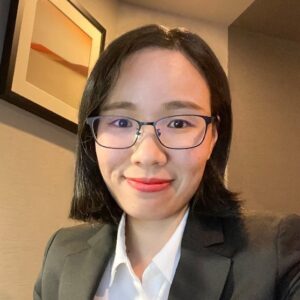
Prof. Hue Le
Kobe University, Japan
Dr. Le is currently a Project Assistant Professor working with Prof. Ooya in the Department of Medical Device Engineering, Graduate School of Medicine, Kobe University. Dr. Le obtained a General Medical Doctor degree from Hanoi Medical University (Vietnam) and a Ph.D. degree in Biomedical Science from Wakayama Medical University (Japan) under the guidance of Prof. Nakata and Prof. Sato. She then completed a postdoctoral fellowship in Biomedical Engineering at the National Cerebral and Cardiovascular Center (Japan), mentored by Prof. Yamaoka and Prof. Mahara. Dr. Le focuses on developing soft biomaterials for clinical applications, including smart injectable hydrogels for endoscopic procedures and cardiac repair, as well as artificial vascular grafts. Her work aims to create biomaterials-based medical devices that improve surgical outcomes and promote tissue regeneration.
_________________________________________________________________________________________
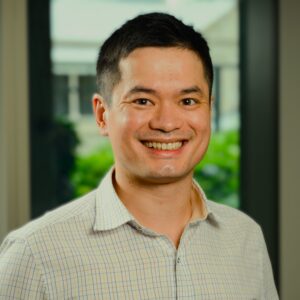
Prof. Vinh Truong
National University of Singapore, Singapore
Dr Vinh Truong is currently a principal scientist and team leader at Institute of Sustainability for Chemical, Energy and Environment, A*STAR, Singapore. He holds an adjunct assistant professor at the Department of Pharmacology, NUS. His research focuses on the applications of photochemical reaction systems in biomaterials engineering and sustainability. Dr Truong has published 80 papers in leading interdisciplinary journals including Nat. Sus., Nat. Comm., JACS, Angew. Chem. Int. Ed, and Adv. Mat. Dr Truong is among the top 2% most-cited scientists 2023-2025, listed by Stanford University. He also engages widely with industry partners, leading a number of industry research collaboration projects with a total funding of $SGD 24 mil.
_________________________________________________________________________________________
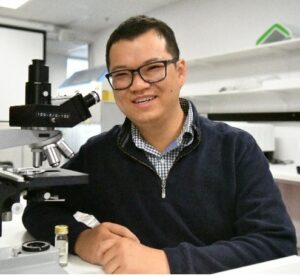
Prof. Vi Khanh Truong
Khalifa University, United Arab Emirates
Dr. Vi-Khanh Truong is an Associate Professor and leading NanoBioLab at Khalifa University. With a Ph.D. in Nanobiotechnology from Swinburne University of Technology earned in 2012, Dr. Truong has built a robust career highlighted by prestigious fellowships, including the BASF Industrial Postdoctoral Fellowship, CNRS Fellowship, RMIT VC Fellowship, and Fulbright Fellowship. His academic journey began with a visiting scholar award in Germany, receiving recognition for his impactful dissertation on titanium implant surfaces. Dr. Truong’s research is dedicated to designing multifunctional nanomaterials that enhance biomedical device performance and mitigate device-related infections; and improve functional food for health. His innovations span advanced antimicrobial products used in medical settings and sustainable agricultural pr
oducts with BASF, reflecting his functional integration of nanotechnology across various applications. His findings are published in top-tier journals like Nature Materials, Nature Communications, Advanced Materials, Adv. Func. Mater, ACS Nano, and PNAS, with over 140 publications and more than 12,000 citations, with an H-index of 51. Dr. Truong’s industrial engagements have led to real-world solutions, including collaborations with Global Orthopaedics (now part of Corin Group) and ANISOP Holdings. He has secured 4 patents, with recent filings in immune modulation and anti-infection. His leadership roles continue to influence both the field of biomedical engineering and functional food nanotechnology, furthering health-promoting innovations.
_________________________________________________________________________________________

Prof. Thuy Ngo
Oregon Health and Science University, USA
Dr. Ngo is an Associate Professor in Molecular and Medical Genetics and Biomedical Engineering at Oregon Health and Science University and a member of the Knight Cancer Institute’s Cancer Early Detection Advanced Research Center (CEDAR). She received undergrad training in Engineering Physics at Hanoi University of Technology and Ph.D. in Biophysics and Computational Biology from the University of Illinois at Urbana-Champaign under the advisory of Dr. Taekjip Ha. She completed postdoctoral training in Dr. Stephen Quake’s laboratory at Stanford University in 2017. Dr. Ngo is interested in technologies and basic mechanisms for diagnosis, precision selection of therapy, and treatment assessment by maximizing the high information content of cell-free RNA, cell-free DNA, and extracellular vesicles in body fluids. Her research program was awarded the IDEA Award from the Department of Defense and Career Catalyst Award from the Komen Susan Foundation. She has published research articles across disciplines in high-impact journals such as Science, Nature, and Cell. Her work in diagnostic technologies has led to multiple patent applications and licenses, and was selected as Top 10 Breakthrough Technologies 2019 by MIT Technology Review. Her findings have been well-received by the academic community, which has led to a broad audience by multiple media outlets such as NYTimes, CNN, BBC, and TIME Magazine.
_________________________________________________________________________________________
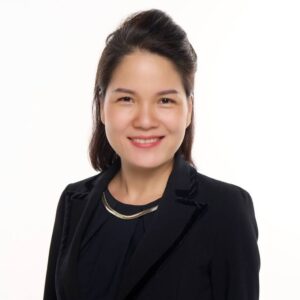
Prof. Quy Vo-Reinhard
dHealth, Switzerland and Genorare B.V., Netherlands
Dr. Quy Vo-Reinhard is the CEO & Founder of Genorare, a Swiss-Dutch venture pioneering AI-powered, privacy-first diagnostics for rare diseases. With a PhD in Computational Biomedicine and an MBA from EBS University (Germany), she brings 20 years of experience in bioinformatics, artificial intelligence, and health data privacy. She co-founded dHealth Network (Switzerland), a blockchain-enabled ecosystem for secure healthcare data exchange, and is CEO of V-Space (France), an AI platform for global talent development. Dr. Vo-Reinhard is a strong advocate for ethical innovation in digital health, focusing on improving access, resilience, and equity. Her work has earned her recognition as Europe’s Most Influential Woman in Blockchain (2018) and Switzerland’s Female Digital Innovator (2020). In addition to her ventures, she actively mentors healthtech founders, teaches at Swiss universities, and serves on international advisory boards. She is deeply committed to transforming healthcare for underserved communities—especially in the field of rare diseases.
_________________________________________________________________________________________
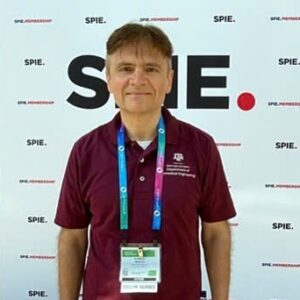
Prof. Vladislav V. Yakovlev
Texas A&M University, USA
Education: 1990: Ph.D. Faculty of Physics, Moscow State University, USSR; 1987: BS/MS Faculty of Physics, Moscow State University, USSR. Experience: 2012 – Present: Professor, Department of Biomedical Engineering, Department of Electrical and Computer Engineering, Department of Physics and Astronomy, Texas A&M University; 1998 – 2011: Assistant Professor, Associate Professor, Professor, Department of Physics, University of Wisconsin – Milwaukee; 1992 – 1998: Assistant Research Scientist, Department of Chemistry and Biochemistry, University of California, San Diego; 1992: Research Engineer, Novatec Laser Systems, Inc., San Diego, California; 1990 – 1991: Research Scientist, International Laser Center, Moscow State University, Moscow, USSR. Service: Member of Editorial Board: Advanced Photonics, PhotoniX-Life, Applied Sciences. Awards: 2025 Light: Science & Applications, Best Reviewer Award; 2023 – Present: Stewart & Stevenson Professor I, Texas A&M University; 2021 SPIE Harold E. Edgerton Award in High-Speed Optics; 2018 – Present: University (Distinguished) Professor, Texas A&M University; 2015 William E. Lamb Medal for Laser Physics and Quantum Optics; Fellow of Optica, SPIE, APS and AIMBE. Research interests: Nanophotonics; biophotonics, including biosensing, bioimaging and therapeutics.
_________________________________________________________________________________________
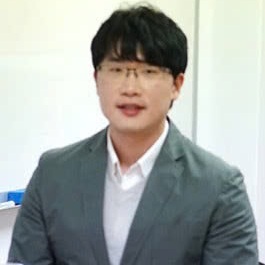
Prof. Sung-Min Lee
Hanyang University, South Korea
Sung-Min Lee is currently an Associate Professor in the Department of Electrical Engineering at Hanyang University in South Korea. He received a B.S. degree from Seoul National University, South Korea in 2006, and M.S./Ph.D. degrees from Korea Advanced Institute of Science and Technology, South Korea in 2008/2012, respectively, all in electrical engineering. Prior to joining Hanyang University, he was a Postdoctoral Research Associate at the University of Southern California in the United States from 2013 to 2015, a Research Staff Member at Samsung Advanced Institute of Technology in South Korea from 2015 to 2016, and an Assistant/Associate Professor at Kookmin University from 2016 to 2023. He also served as a Visiting Assistant Professor at Terasaki Institute for Biomedical Innovation in the United States in 2022. His research interests have been on emerging optoelectronic devices and systems with unusual functions and enhanced performance. He has been studying (i) free-form displays and lightings, (ii) flexible/wearable/transparent semiconductor photovoltaics, (iii) optical sensor systems, and (iv) biocompatible electronics. He has given several invited talks and lectures at conferences and seminars, and authored over 50 peer-reviewed journal articles (H-index = 22). Since 2021, he has served as an Asian Program Committee Member of the Society for Information Display (SID) and Technical Program Committee Session Chair of the Global Photovoltaic Conference (GPVC). Also, he has been working as an associate editor of the IEEE Transactions on Electron Devices since 2023.


